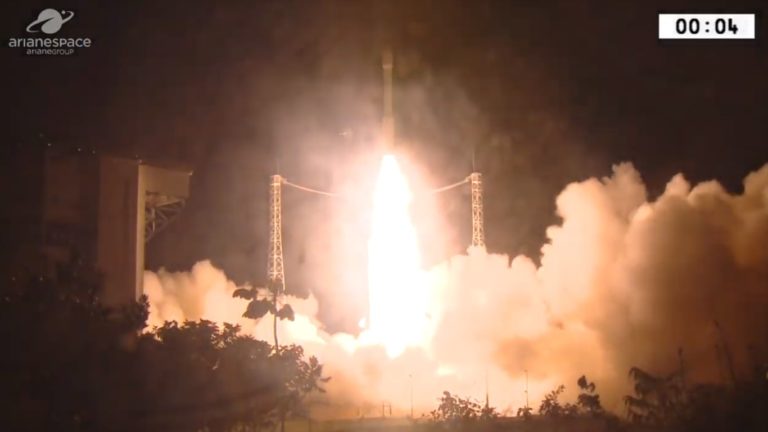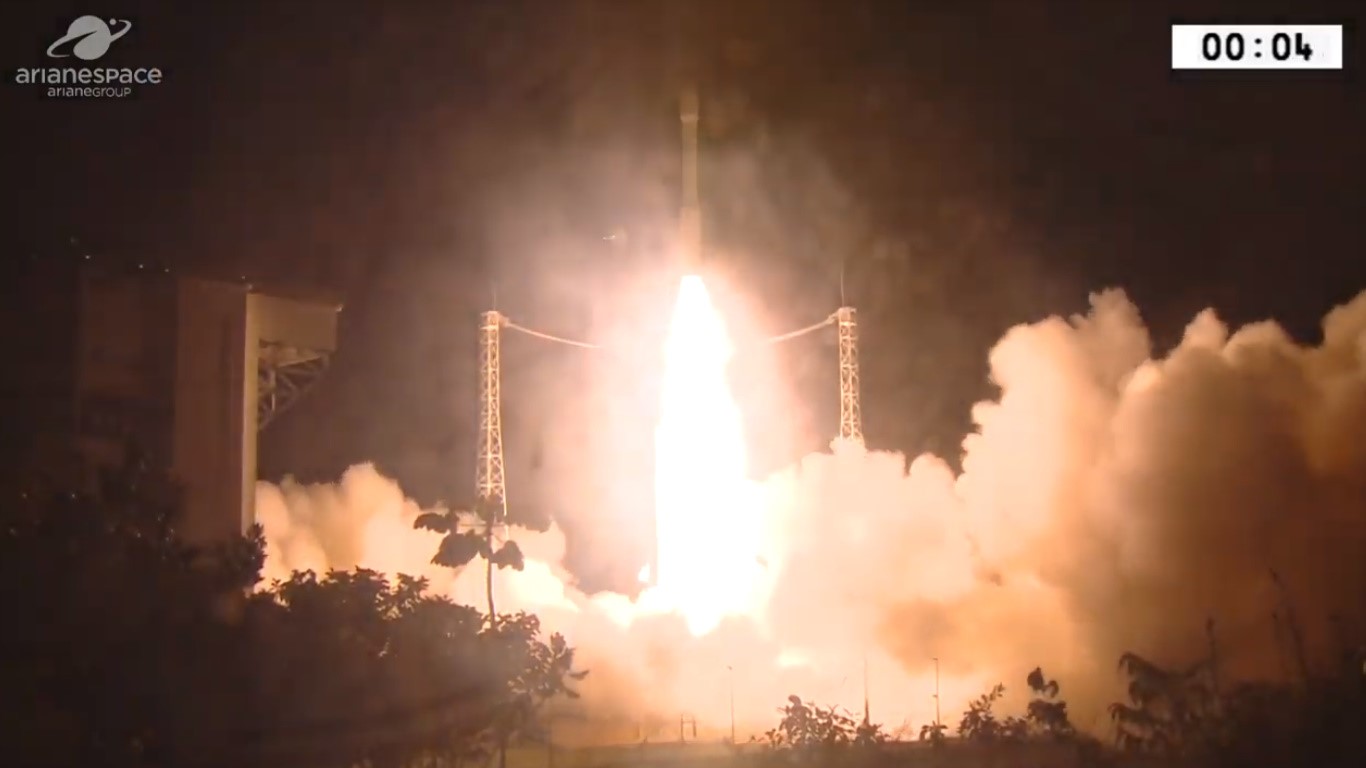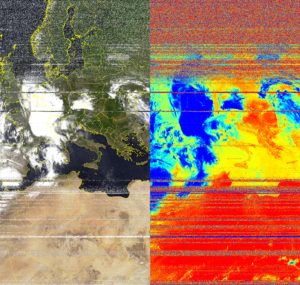
Two and a half months after Vega’s successful return to flight, the Vega launch vehicle lifted off as scheduled on 17 November at 02:52 CET / 22:52 local time on November 16 from Europe’s Spaceport in Kourou, French Guiana. Although the departure was nominal, the payload of two satellites was lost when the rocket’s fourth stage malfunctioned. The failure of the Vega launch was caused when the rocket’s upper stage tumbled out of control due to incorrectly installed cables in a control system. Arianespace will convene an investigation commission, chaired by the European Space Agency’s inspector general, to confirm the cause of the failure and recommend corrective actions. The failure caused the loss of two spacecraft, the SEOSAT-Ingenio Earth observation satellite for Spain and the TARANIS satellite for France to study electromagnetic phenomena in the upper atmosphere.







